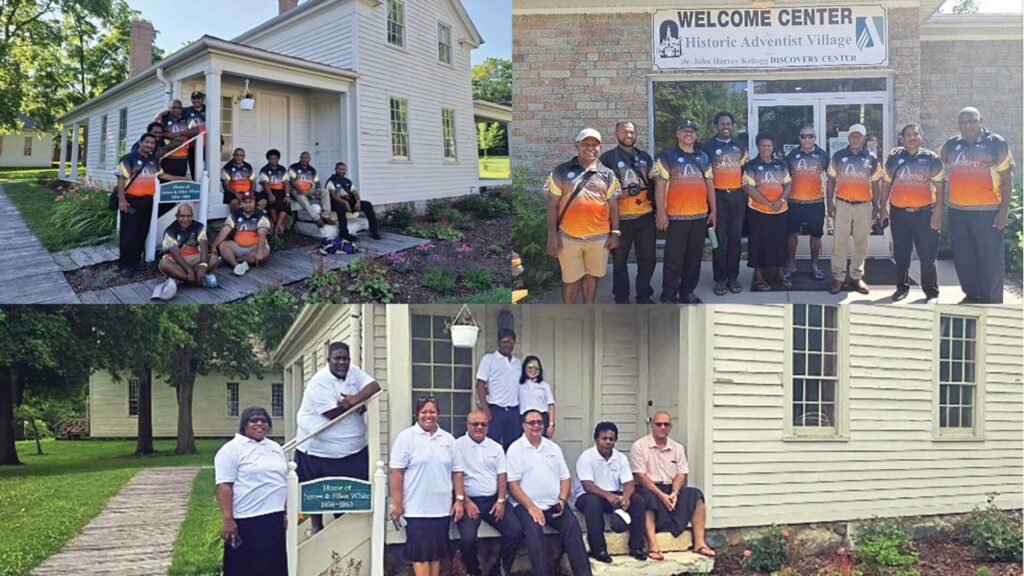A few years ago, I was a poor university student studying to be a pastor. I was living pay-cheque to pay-cheque, relying on my cleaning job and government allowance. At the end of a particular semester, I had completely run out of money. I was too ashamed to tell anyone, not even my parents. One Sabbath I went to the church I grew up in and ran into an older church member. He was a retired minister and had seen me grow up (we’ll call him Doug). He asked me how my studies were going and I faked a smile, telling him “things were going well”. Doug saw through my lie and eventually I cracked. I told him I had run out of money and didn’t have enough to pay for the next semester. To this day I don’t know why I told him and no-one else. Doug asked me, “How much do you need to pay for your next semester?” I told him the figure—several hundred dollars (though to me it may as well have been a million). What he said next shocked me.
When we’re desperate, our first instinct is to go into self-preservation mode. We hoard what we have, guarding it jealously. The last thing on our mind usually is generosity. If anyone understood this, it would have been Jesus. He grew up in a militarised zone. Jews living in Israel in His era were taxed up to their eyeballs and continually maligned by their Roman oppressors. So, when Jesus says things like “do not worry about your life, as to what you will eat; nor for your body, as to what you will put on” (Luke 12:22) and “sell your possessions and give to charity . . . ” (v33), it must have come as a shock to His audience. It’s one thing to tell a rich person to give up a portion of their wealth but to tell a poor person to sell their possessions and not worry about what they will eat or wear? It sounds insulting. This message of radical generosity likewise didn’t prevent Jesus from being abused, persecuted and later murdered like a common criminal.
But there’s good news—this was all part of the plan. Through allowing Himself to be mistreated, Jesus gave us the most profound gift: His life and eternal presence (the Holy Spirit). As Paul worked through this profound mystery, he penned the words, “For you know the grace of our Lord Jesus Christ, that though He was rich, yet for your sake He became poor, so that you through His poverty might become rich” (2 Corinthians 8:9).
Going back to that Sabbath with Doug; after thinking for a moment, he replied with a twinkle in his eye: “Well then, it’s a good thing I deposited that sum of money into your account yesterday.” I was stunned. Apparently, he’d asked my parents for my bank details and without telling me, had given me the exact amount I needed. Here I was stressing out when what I needed had already been provided for! I was incredibly grateful and thanks to his generosity I was able to finish the semester and later graduate.
This unexpected gift has stuck with me all these years later and has informed the way I think about the greatest gift we can all receive: the life-giving presence of Jesus. Doug’s generosity reminded me that the best thing we can do with the gifts God has given us is to give them away. Whether it’s a piece of literature like a Signs of the Times magazine, monetary blessing or a skill or gifting, God is calling us all to live like there is enough within His generous world and follow the example of the One who gave Himself away.
If you’re not sure where to start, you’re in luck. August is Signs of the Times month. Every year we celebrate one of the easiest ways to share Jesus—by subscribing or donating to Signs of the Times. It’s a magazine that is designed to communicate the life-changing message of Jesus in an approachable and understandable form. Whether large or small, your contribution can help someone you may never meet this side of eternity discover the amazing love Jesus has for them. If you ask me, that’s something worth supporting.
Visit signsofthetimes.org.au today and find a way to share Jesus simply.
Jesse Herford is associate editor of Signs of the Times magazine.






